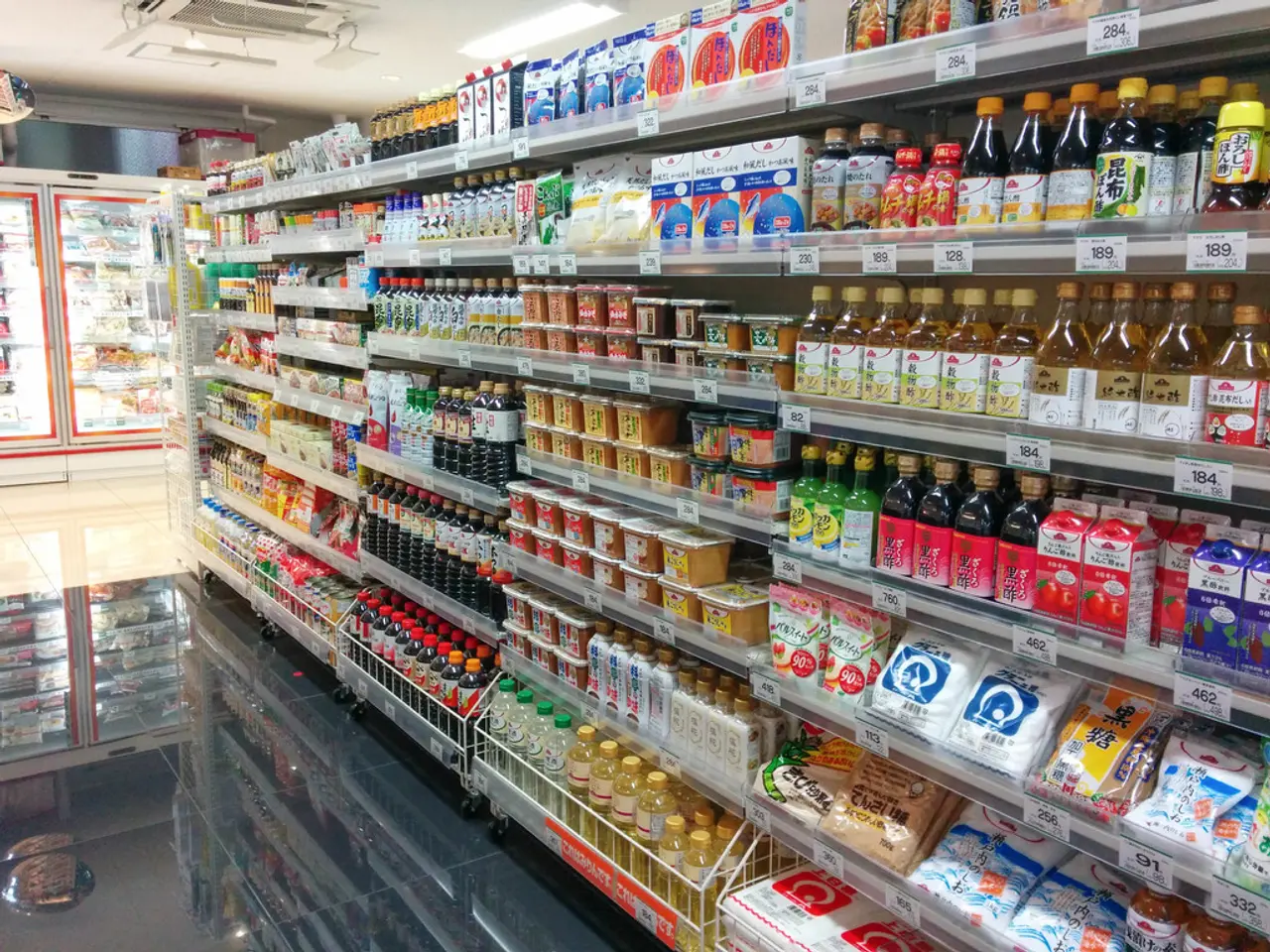"Delayed entry, according to Wilson executive, discussing the New York flagship store and the DTC strategy of the brand."
Hitting It Home: Wilson's Pivot to a Front-and-Center Brand Strategy
Known for basketballs, baseball gloves, and even bloody handprint volleyballs, Wilson isn't shy when it comes to brand awareness. From sporting goods retailers' shelves to the hands of professional athletes, Wilson's gear grabs attention from tennis to football. But now, the brand aims higher, seeking to move from a familiar sideline presence to center stage.
Over the past year, Wilson's strategy has shifted. Gordon Devin, president of Wilson Sportswear, says, "We've spent 108 years building a foundation, and that's it." This shift includes opening stores featuring Wilson's products, not tucked alongside competitors, and the launch of an apparel line.
In May last year, Wilson revealed its intentions for a fleet of retail stores and a new clothing line. Since then, the company has launched stores in Chicago and a U.S. Open-themed tennis pop-up. Recently, they opened their first flagship store in New York's trendy SoHo district, three times the size of their Chicago storefront.
The flagship store offers more than just equipment and lifestyle apparel; it's about interaction and experience. services such as racket stringing, leather ball customization, glove personalization, and even a golf simulator are available. A central atrium space hosts various sporting events, serving as the heart of the flagship.
"I want to create mayhem for our store staff," Devin admits. "I want to see balls flying all over the store because we have created a space where we are inspiring play - that's what it's all about." The store features a graffiti mural by local artist Greg Lamarche, and local New York athletes celebrated its opening. The store is just the beginning, with plans for locations in Chicago, New York, and Los Angeles, as well as a Shanghai location set to open soon.
But why this push for a more direct connection with consumers now? Wilson joins a growing list of brands making a direct-to-consumer (DTC) push, often at the expense of wholesale partners. However, Wilson has invested in a strong wholesale presence since its inception and has no intention of abandoning it.
The DTC strategy offers Wilson another way to engage with its consumers and tailor stores to what its brand loyalists want. In fact, Wilson tweaked the acronym to stand for "direct to community." Essentially, the locations, services, and products will be based on the philosophy of building communities around the brand.
Wilson's store models include flagships emphasizing a full brand expression, smaller, community-focused locations, and temporary pop-ups like the one opened for the U.S. Open. While services are essential across all locations, daily operations will be more restricted in smaller stores due to space limitations.
Over the next few years, Wilson will open a mix of these formats, favoring flagships in key U.S. and global markets. Smaller format stores will be introduced to specific communities, and pop-ups will capitalize on key sports moments. Additional pop-ups are already planned for this summer.
Even with this shift, Wilson acknowledges it may have entered the game somewhat late. However, Devin is confident that the brand will make the most of its dedicated customer base. "When we give customers the opportunity to interact with this brand and we try to give them the permission to love us, they really do," Devin says.
While Wilson is not the first brand to embrace DTC, its rich history and commitment to community engagement position it well for continued growth and fan loyalty, especially in key markets like China, where the company plans to open approximately 50 additional Tennis 360 stores by 2025, bringing the total in the region to nearly 100 outlets. With innovative products and targeted retail experiences, Wilson is gearing up for a more direct and personal brand-consumer relationship in the future.
- Wilson, known for various sports equipment and apparel, aims to transition from a sideline presence to center stage in the branding landscape.
- The brand's new strategy includes launching retail stores showcasing their products, with a flagship store opened in New York's trendy SoHo district, offering more than just merchandise but interaction and experiences.
- Wilson's DTC strategy, or "direct to community," will see a mix of store formats, including flagships, smaller community-focused locations, and temporary pop-ups like the one for the U.S. Open.
- Beyond sports equipment and apparel, Wilson is also investing in AI technology, with plans to use this technology to improve product design and customization options.
- As the brand expands its retail footprint, it recognizes the importance of key markets, such as China, where Wilson plans to open approximately 50 additional Tennis 360 stores by 2025.
- With its rich history, commitment to community engagement, and innovative approach to retail, Wilson aims to foster a more personal brand-consumer relationship in the future, transcending traditional sports markets and venturing into areas like AI and technology.




